Nation & World
-

Unfuzzy math: U.S. needs to do better
Ed School expert has some ideas, including a rethink of homework bans, after ‘discouraging’ results

-

What to expect when you’re elected
Bipartisan group of lawmakers gets to know Washington by way of the IOP
-

Defining and confronting campus antisemitism
Scholars in Jewish Studies say education, conversation can bolster efforts to defeat hate
-
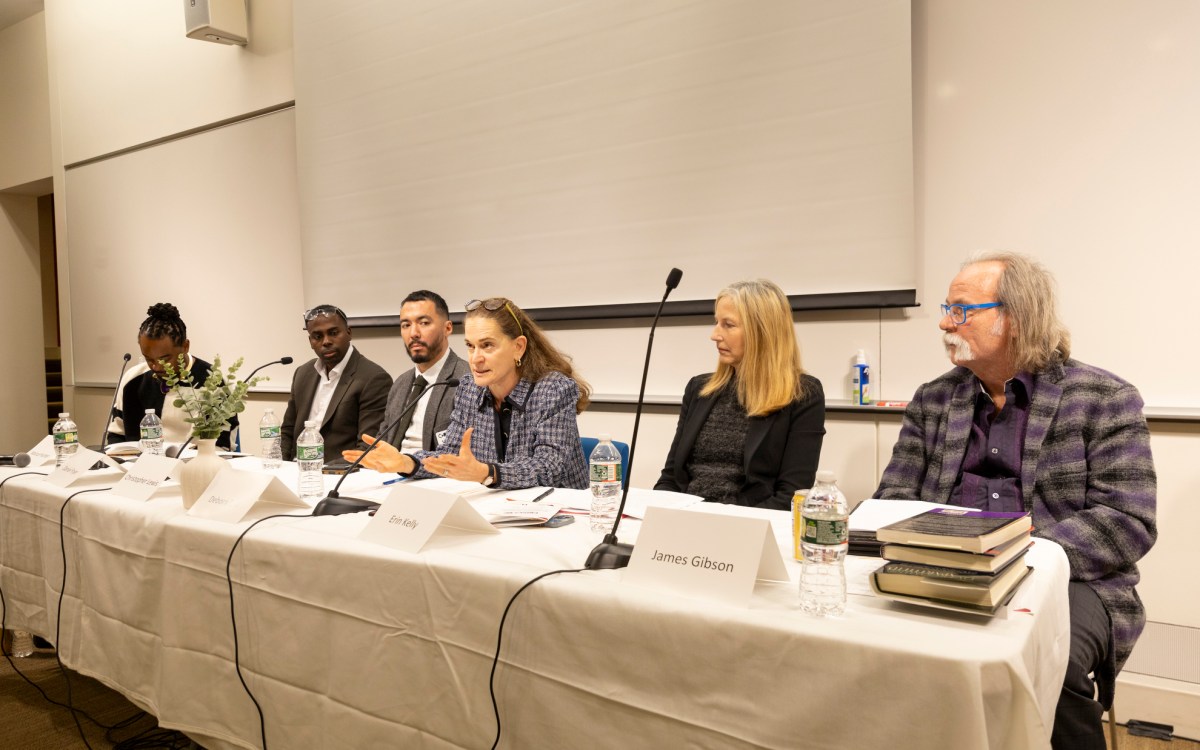
Are reparations the answer?
Harvard symposium explores case for restitution to Black Americans legally, economically, ethically
-
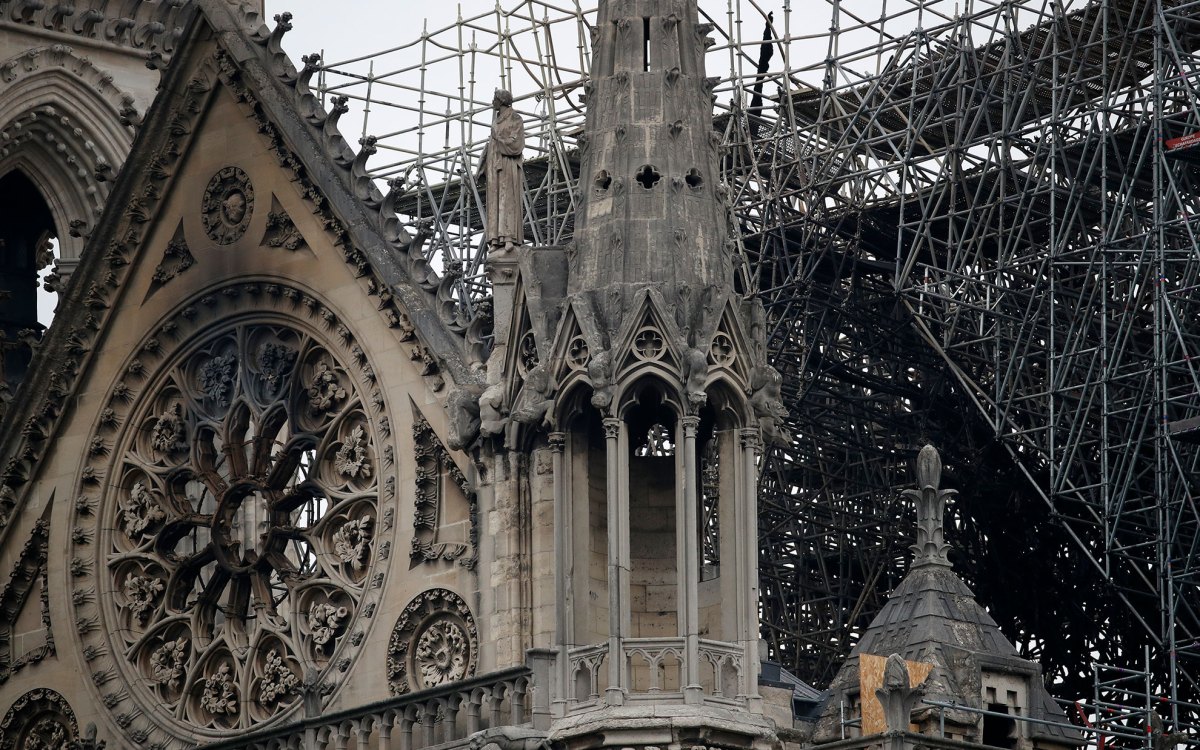
Exact cause of Notre-Dame fire still unclear. But disaster perhaps could’ve been avoided.
Leadership expert says foreseeable factors all contributed to complex failure. Consistent focus needed on best practices, rules, procedures.

-
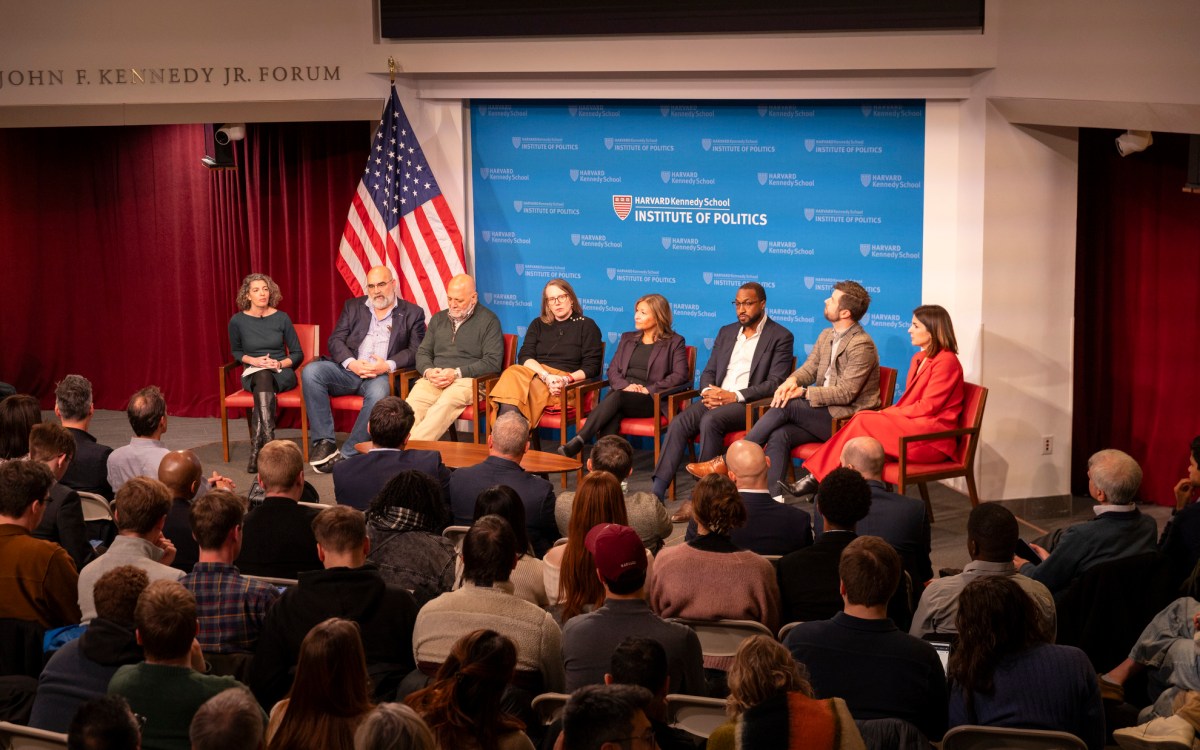
How the presidency was won, lost
Top campaign leaders from both sides talk about what worked, didn’t at Kennedy School postmortem
-
Congo: Couldn’t leave them behind
Researchers from the Harvard Humanitarian Initiative have been working in the Democratic Republic of the Congo for several years examining the roots of the violence against women that has plagued this war-torn region.
-
Lesotho: She looks better
The tiny African nation of Lesotho is among those hardest hit by the raging twin epidemics of AIDS and tuberculosis. Harvard faculty members are advising the government and helping to revamp clinics and treat patients in the far-flung mountain regions of this poor country.
-
The man from Kyrgyzstan
Historian Baktybek Beshimov, a former diplomat and parliamentarian, fled political unrest in his homeland to research and write in Harvard’s Scholars at Risk program.
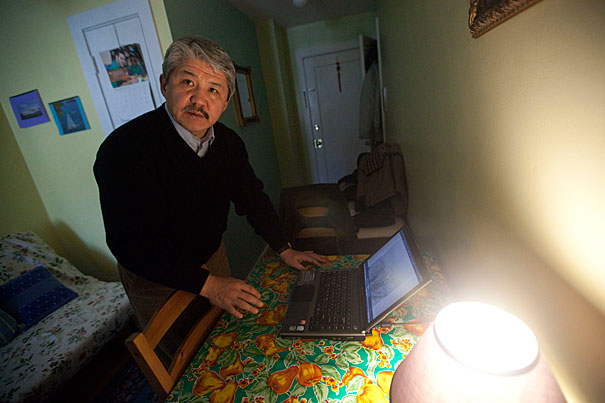
-
Scholars at Risk network
The Scholars at Risk network is made up of 194 universities in 23 countries, and based at New York University. It was founded in 1999 by University of Chicago legal scholar Jacqueline Bhabha, who now is the Jeremiah Smith Jr. Lecturer in Law at Harvard Law School and the University adviser on human rights education.
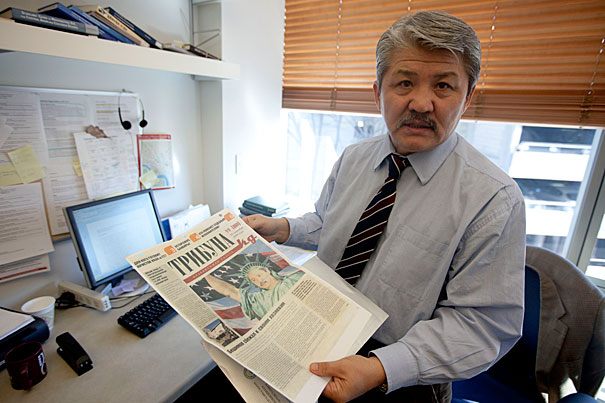
-
Harvard lends a hand to Chile
The Harvard community has reached out to help Chile recover from last year’s earthquake, with efforts ranging from students working on reconstruction during winter break to an upcoming planning meeting involving Harvard faculty members and President Drew Faust.
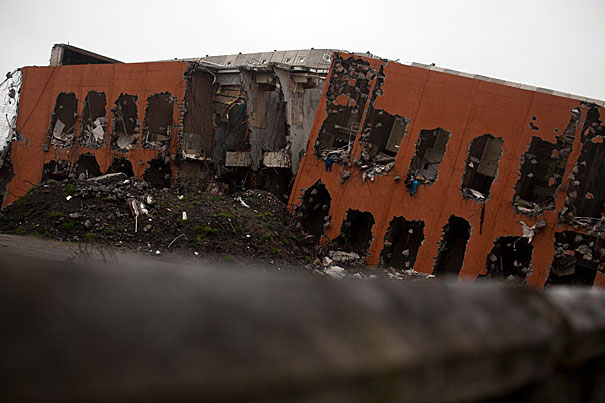
-
Avoiding a ‘fiscal train wreck’
During remarks Thursday (Feb. 24) at the Harvard Kennedy School, House Majority Leader Eric Cantor portrayed the United States as a “fiscal train wreck” and sketched the stark choices that Republicans consider necessary to fuel the nation’s economic engine.
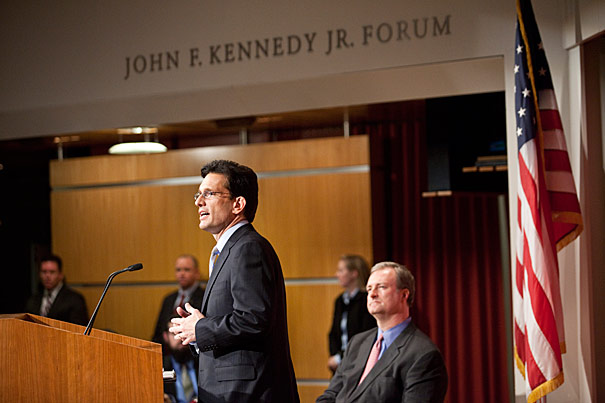
-
Labor’s love lost
As anti-union sentiment sweeps state governments around the country, recent success stories in Massachusetts could hold the keys to improving public unions’ image, local leaders said at Harvard Kennedy School.
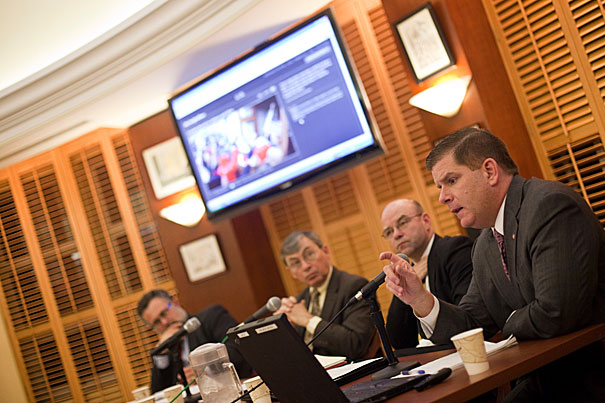
-
Chronic condition
Panelists discussed the impact, failures, and future of health care reform at a Harvard Kennedy School event on Feb. 23.
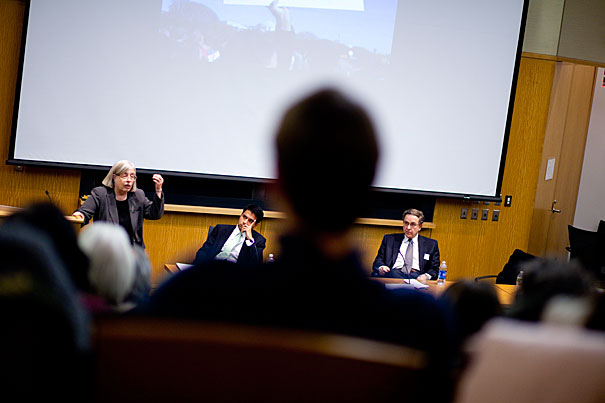
-
Congo: DRC History
Researchers from the Harvard Humanitarian Initiative have been working in the Democratic Republic of the Congo for several years examining the roots of the violence against women that has plagued this war-torn region.
-
Congo: Men with Guns
Researchers from the Harvard Humanitarian Initiative have been working in the Democratic Republic of the Congo for several years examining the roots of the violence against women that has plagued this war-torn region.
-
Botswana: One Woman’s Story
Though there are signs that the Botswana AIDS epidemic is slowing, the disease remains the top cause of death in the southern African nation. HIV infection rates are down nationwide to 24 percent, while life expectancy, which had fallen from 64 in 1990 to 40, rose to 50 in 1997.
-
Taming Australia
The recent floods and drought experienced by Australia are extreme expressions of a naturally fluctuating water cycle that has been moderated with engineering and which the introduction of market reforms recently has made more efficient.
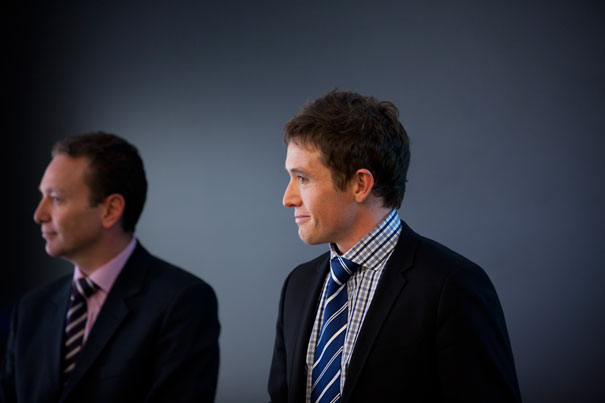
-
Setting a course for Serbia
Serbian Minister of Foreign Affairs H.E. Vuk Jeremic, Harvard Kennedy School alumnus and former Kokklais Fellow, affirmed his nation’s determination to maintain Serbian sovereignty over Kosovo and to join the European Union in a talk at the Harvard Kennedy School on Feb. 17.
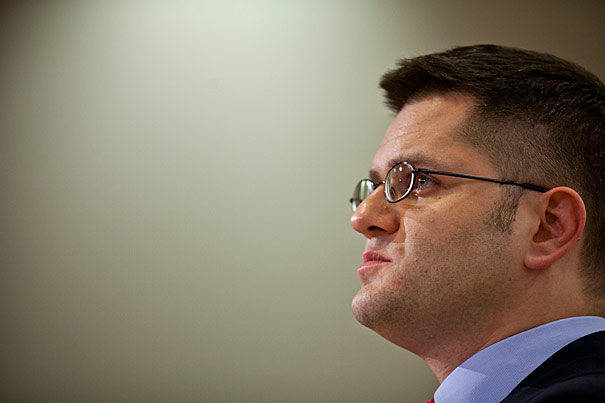
-
Get smart
Joseph Nye staked his career on the idea that power on the world stage means more than just military might. In the information age, the former Harvard Kennedy School dean argues, the United States needs to learn that lesson more than ever.
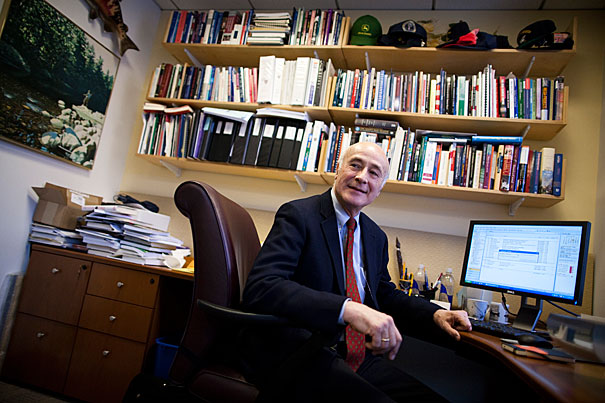
-
To catch a killer
The field of genomics, after revolutionizing crime fighting through DNA testing, is likely to shake the political landscape, says Jennifer Hochschild, who is researching its implications in Washington, D.C.
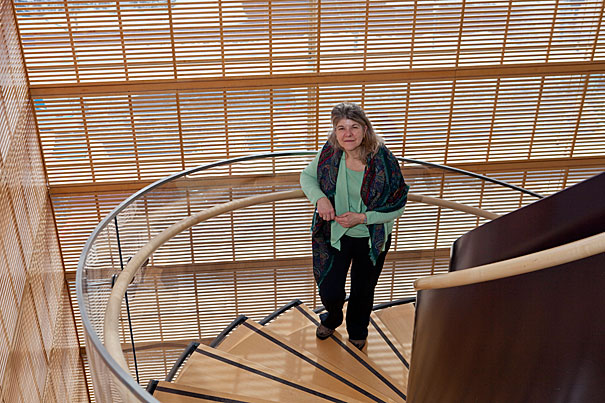
-
Chasing prices
Gita Gopinath, Harvard’s newest tenured professor of economics, uses complex mathematics to model the financial world, but she also hunts for clues in real-world data.
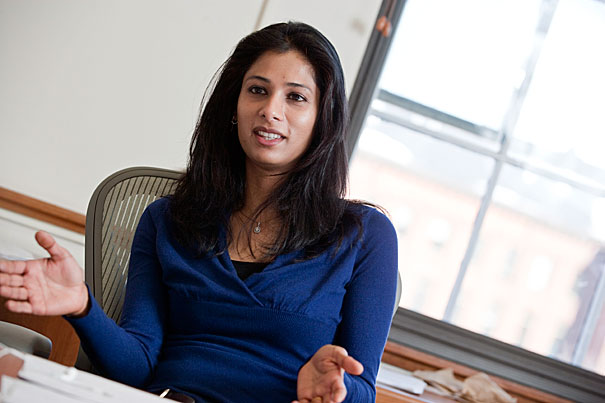
-
One country, two stories
A Harvard doctoral student from Belarus spends winter break in her homeland, awash in election turmoil.
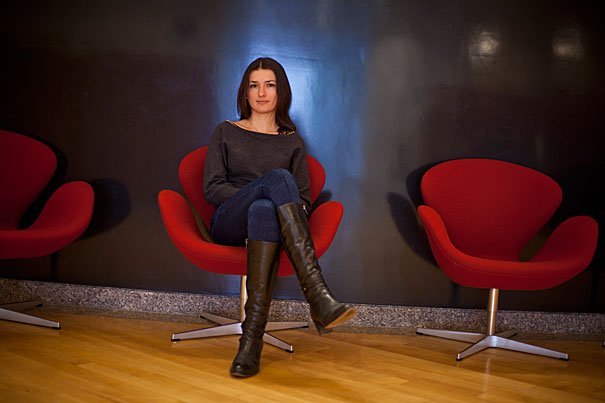
-
Church of one
Americans are a God-fearing people, but we increasingly identify as nonreligious, according to Harvard political scientist Robert Putnam. Putnam shed light on “the rise of the nones” and other findings from his new book, “American Grace,” in a talk at Harvard Divinity School on Feb. 15.
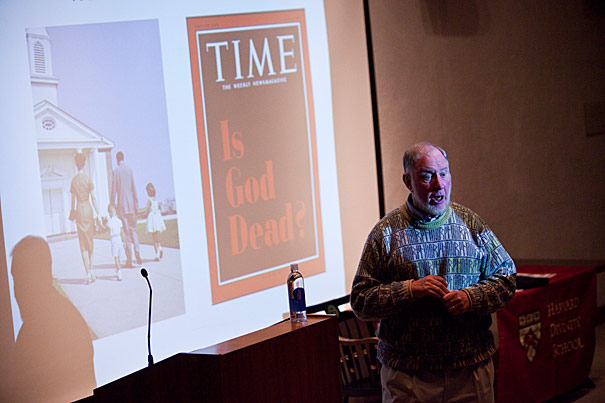
-
Don’t just sit there
The first of a series of campuswide dialogues on teaching and learning called “Conversations@FAS: Redefining Teaching and Learning for the 21st Century,” featured A.R.T. Artistic Director Diane Paulus; Christopher Winship, the Diker-Tishman Professor of Sociology; and David Malan, lecturer on computer science.
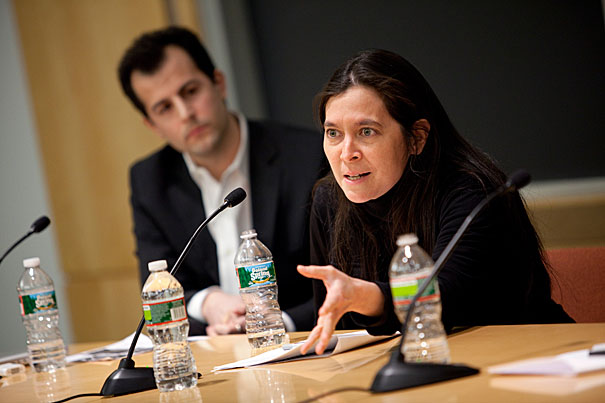
-
Focus on Egypt
Harvard Kennedy School faculty members and scholars offer their varied perspectives on the situation in Egypt via a website that is being updated regularly.
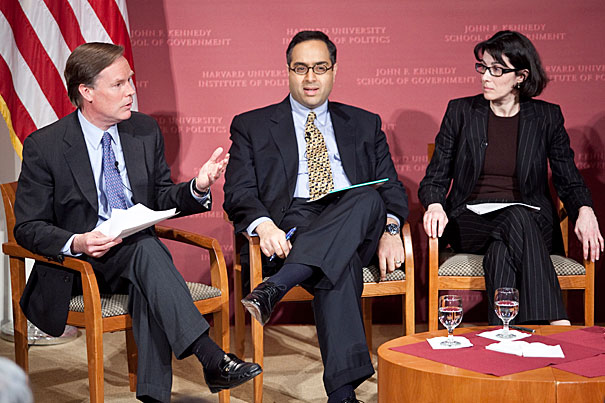
-
What it takes to lead
Do leaders need competence, character, or both? And can such traits be taught? On Feb. 7, Harvard experts gathered to discuss the University’s role in fostering leaders in business, education, and the public sector in honor of Harvard Corporation member Nan Keohane’s new book, “Thinking About Leadership.”
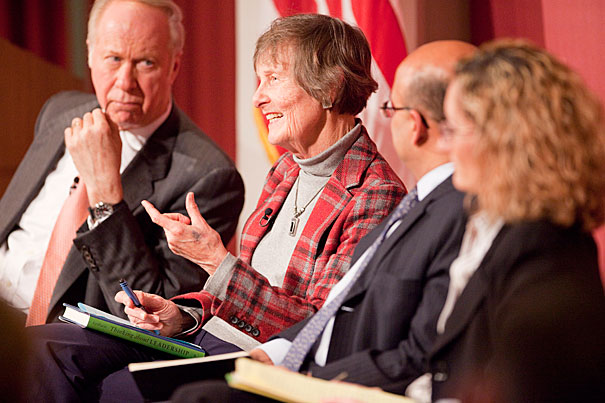
-
‘That was his dream’
A diverse Harvard community celebrated Interfaith Awareness Week during a moving ceremony at the Memorial Church on Monday (Feb. 7) evening, remembering the life and message of the late Martin Luther King Jr.
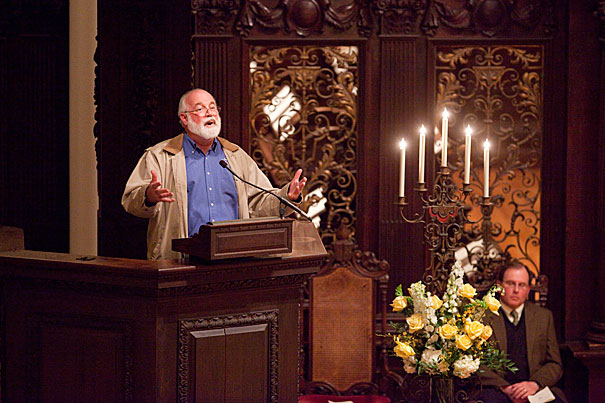
-
Spotlight on the international
Harvard is one of the world’s most international universities, with students and faculty from around the world. Overseas research and study abroad opportunities abound.
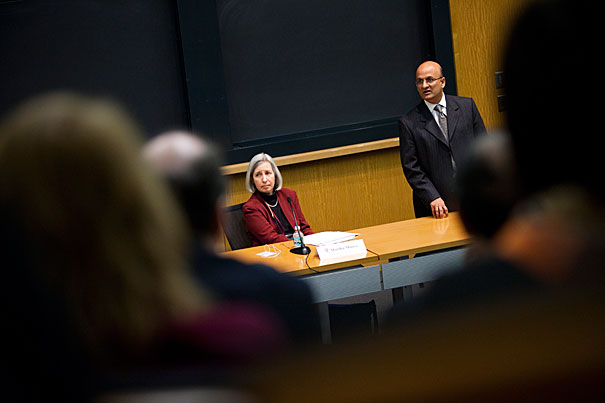
-
An ‘extraordinary moment’
The protests that have rocked the Arab world in recent weeks have left many observers wondering if the region’s citizens will achieve self-government after decades of dictatorial rule. As Egyptians continued to demonstrate, a crowd flocked to the John F. Kennedy Jr. Forum at the Institute of Politics Feb. 3 to hear several Harvard analysts’ views on the wave of pro-democratic protests.
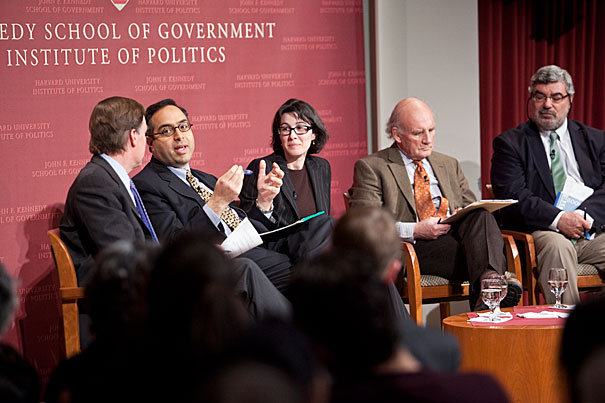
-
Shock amid the service
A winter break trip to the Navajo Nation in New Mexico shows the realities of poverty to a group of Harvard undergraduates.

-
Turning on the lights
Like much of Africa, Liberia relies on ineffective, dirty sources of energy. Coming off a fellowship at Harvard’s Advanced Leadership Initiative, Richard Fahey has one big goal: to transform the country’s electrical grid from the bottom up.
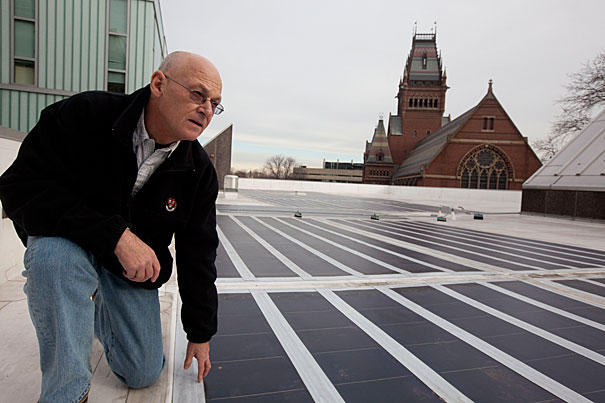
-
Changing how teachers improve
A new initiative headed by a Harvard scholar aims to transform the way teachers improve their performance, and to overhaul the nation’s public schools in the process.

-
Haiti: 3 Years, 6 Months
Living in the poorest country in the Western Hemisphere, most of Haiti’s nine million people are subsistence farmers. Poverty and malnutrition are exacerbated by poor health care and a low vaccination rate.
-
South Africa: Valley of 1,000 Hills
One of the continent’s richest nations, South Africa also has one of the world’s highest HIV infection rates and is home to the world’s biggest population of HIV-infected people, an estimated 5.5 million.
-
Lesotho: The Pilots
The tiny African nation of Lesotho is among those hardest hit by the raging twin epidemics of ADIS and tuberculosis. Harvard faculty members are advising the government and helping to revamp clinics and treat patients in the far-flung mountain regions of this poor country.

